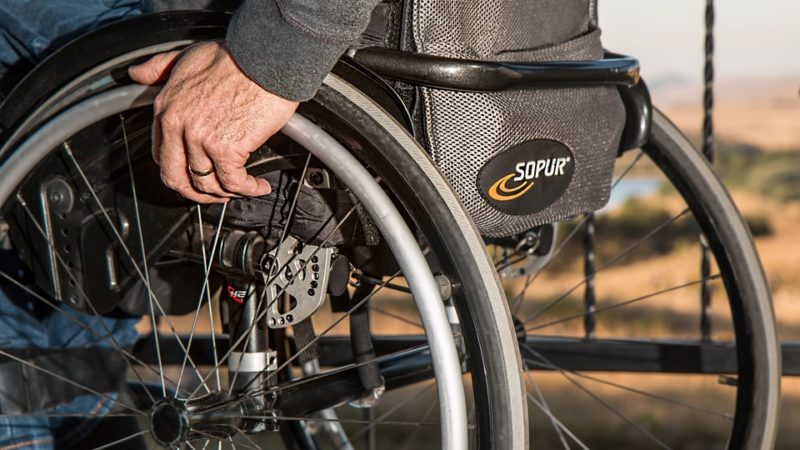New polling from the charity Leonard Cheshire found that a third of disabled adults – more than 2.8 million people – had less than £50 per week to pay for food and other essentials.

Ben Cooper (@BenCooper1995) is a senior researcher at the Fabian Society
We are all suffering with the cost of living crisis, but it is hitting disabled people especially hard.
This is because many face the extra costs that come with disability. Before the current crisis, 4.1 million households with a disabled person spent more than the UK average on energy. Many disabled people need extra energy to keep the heating on for specific medical reasons or to power vital equipment that keeps them safe, independent, and healthy.
Disabled people also entered this crisis with less income to pay for bills. New polling from the charity Leonard Cheshire found that a third of disabled adults – more than 2.8 million people – had less than £50 per week to pay for food and other essentials.
Every day, many disabled people face a choice – not just between heating and eating, but about what to sacrifice to be able to move around, stay clean and safe, or even to stay alive.
The dire situation faced by many disabled people is not inevitable. While higher living costs are partially due to global pressures, the government has actively made disabled people’s lives harder.
The Spring Statement failed to increase benefits to match expected inflation, forcing down the real incomes of disabled people, as their bills rise.
But there was an extra sting in the tail: almost 300,000 people in receipt of disability benefits will no longer receive the Warm Homes Discount, a scheme designed to cut the cost of energy. The Prime Minister talks about helping people with the cost of living, while cutting the very support that helps disabled people.
And this comes on top of all the cuts to social security, sanctions, and benefit assessments since 2010. These changes hit the incomes of disabled people four times harder than non-disabled adults, according to one 2019 estimate from the Disability Benefits Consortium,
But this isn’t just cruel; it is actually the opposite of what the British public want. Public attitudes can be quite harsh toward certain groups who rely on social security, but not towards disabled people.
Our Fabian Society research showed the public is consistently more supportive of additional help for disabled people and their families. We found that 63 per cent of people thought a disabled adult who may not be able to work again, should receive more in benefit payments than they currently do.
We should take confidence from the British public, and invest in our social security system to support disabled people. Public support is necessary to sustain what is likely to be a long-term process.
The government can start by increasing disability benefit payments, including legacy ones, by the current rate of inflation. But this is a stop-gap measure. We need to go further to repair the social security system, so it delivers greater financial security for all and supports people with the extra costs that come with being disabled.
The government has chosen to push many disabled people into severe poverty and financial insecurity. Now more than ever, they must rethink and reverse their decisions. The public would back them if they do.
To reach hundreds of thousands of new readers we need to grow our donor base substantially.
That's why in 2024, we are seeking to generate 150 additional regular donors to support Left Foot Forward's work.
We still need another 117 people to donate to hit the target. You can help. Donate today.



